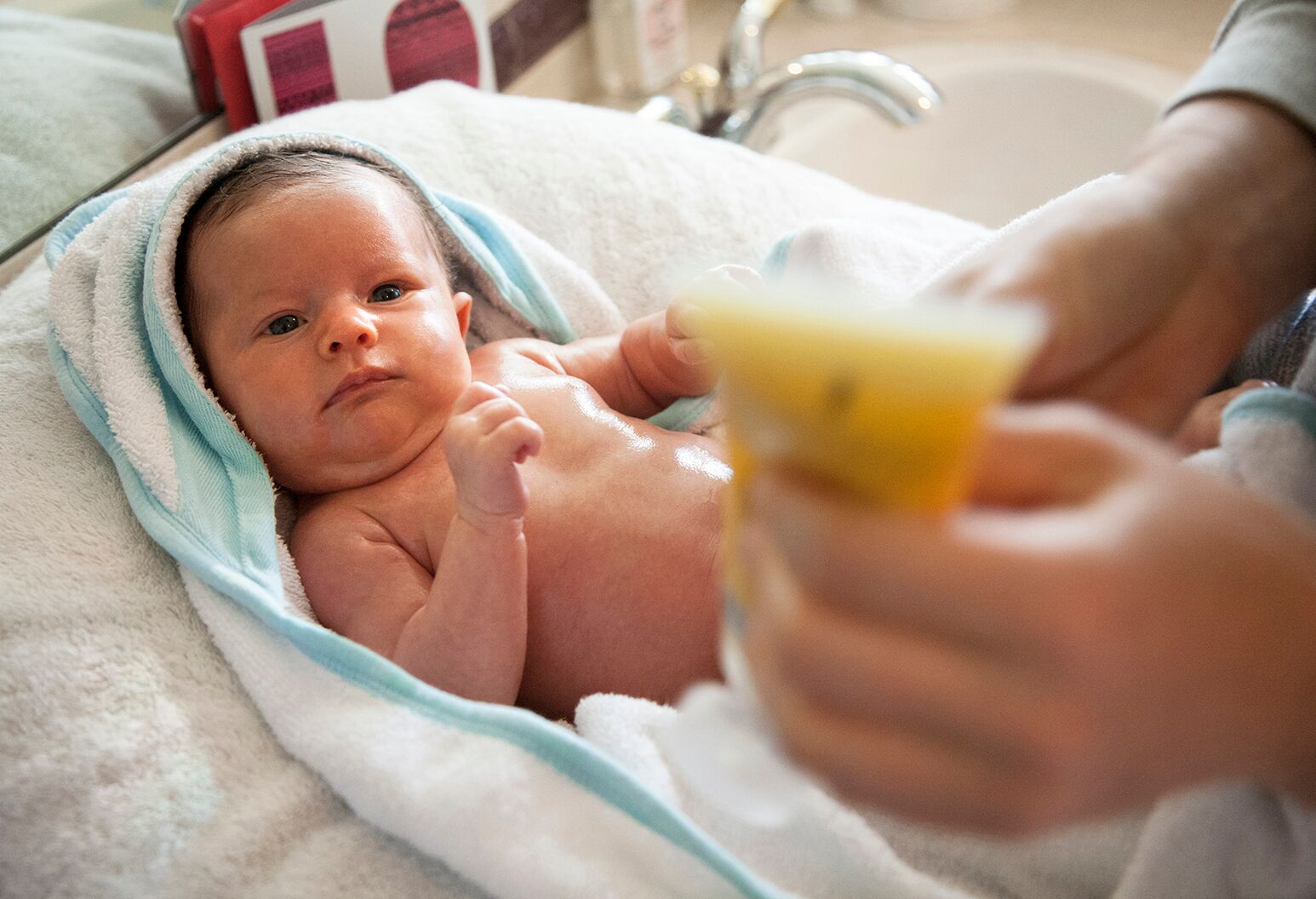parenting
My Ex Doesn't Want To Co-Parent

Your baby’s skin may need more attention than you realize. Here’s how to spot issues and fix them.
4 min read
Ever heard the saying: “As smooth as a baby’s bottom”? Well, there’s a good reason the phrase has become so popular—baby’s skin is some of the softest, smoothest skin there is. So, when new parents suddenly notice a rough patch or rash, their first instinct may be to worry and wonder, is this normal?
Indeed, new parents may be surprised to learn that despite being years away from the woes of teen acne, their newborn and young children are extra susceptible to a whole host of skin issues and conditions including bumps, rashes, rough patches, and more.
For a primer on common baby skin issues, we turned to Northwell Health pediatric dermatologist Nika Finelt, MD. Here’s her overview on the conditions parents most typically see, how to prevent them when possible, how to treat them if they do happen, and when you should take your little one to the doctor for professional evaluation.
When it comes to the most common blemishes and nuisance skin conditions for small children, Finelt says there are a few that top the list:
It usually clears up on its own after cooling down the skin and ending the perspiration. But if it’s painful, if pus drains from the lesions, or if it comes with a fever or swollen lymph nodes, consult a doctor.
By providing your email address, you agree to receive email communication from The Well.
Common among young children, this can also happen at any age. The chronic condition results in periodic flare-ups, and might be accompanied by asthma or hay fever. While there's no cure for this condition, at-home treatments like medicated creams can help soothe it. To help prevent flare-ups, steer clear of harsh soaps and frequently moisturize baby’s skin.
While parents can’t prevent some common baby skin conditions (such as infantile hemangiomas), they can help improve others (such as eczema) or even prevent flare-ups with some basic best practices and simple home remedies.
Sure, those heavily fragranced and frothy mass-market skin care products can be tempting as part of a cozy bath time routine, but these soothing-seeming items can actually be the cause of irritation on babies’ fragile skin. “Avoid using fragranced products, avoid bubble baths, and use minimal soap,” Finelt says.
Bathing the baby daily is OK, she says, but each time “moisturize with bland emollients following the bath to minimize irritation and drying.”
Specifically as a way to prevent or mitigate eczema, “you want to avoid bubble baths, too much soap, fragrant soaps, and emollients,” she explains. “Too many baby products have fragrance added to it, and these additives stress delicate skin.”
Although baby skin conditions are common and frequently harmless, Finelt advises approaching them with caution and visiting a doctor to explore any concerns, especially if marks are visible on the skin or are clearly causing discomfort to your child.
“If a baby is symptomatic, itchy, or if anything is growing on their skin, then their parents should seek care,” she says.
The Well is Northwell Health’s commitment to the future of health care. In this time of information overabundance, much of which is inaccurate, unhelpful, or even difficult to understand, Northwell Health is on a mission to make a difference as an honest, trusted, and caring partner. The site connects with consumers to provide them with personalized content that reduces their stress, makes them laugh, and ultimately feel more confident and capable on their healthcare journey.